
Sign in
Don't have an account with us? Sign up using the form below and get some free bonuses!

When we hear the term "highly sensitive child" (HSC), we may think about an anxious child or an intensely shy child who cries often or is easily overwhelmed. Although sensitive kids may exhibit those traits on occasion, you may be surprised to learn those aren't actually the hallmarks of most highly sensitive kids.
This article will dispel common myths about highly sensitive kids and give parents tools to support their children exactly as they are. I'll share the five important things you need to know later in the article. First, I'll define what sensitive means, and what it doesn't.
To be clear upfront, though, know this: there's nothing "wrong" with high sensitivity. In fact, did you know that sensitive persons may have been instrumental to human survival?
Sensory processing sensitivity [more on this term in a moment] is thought to be one of two strategies that evolved for promoting survival of the species (Aron and Aron 1997; Wolf et al. 2008). By being more responsive to their environments, these more sensitive organisms have an enhanced awareness of opportunities (e.g., food, mates, and alliances) and threats (e.g., predators, loss of status, competitors), and thus may be more ready to respond to emerging situations. (source)
If highly sensitive people are partially to thank for the continuation of human existence, it's time we understand more about them--and help them thrive in today's environment.
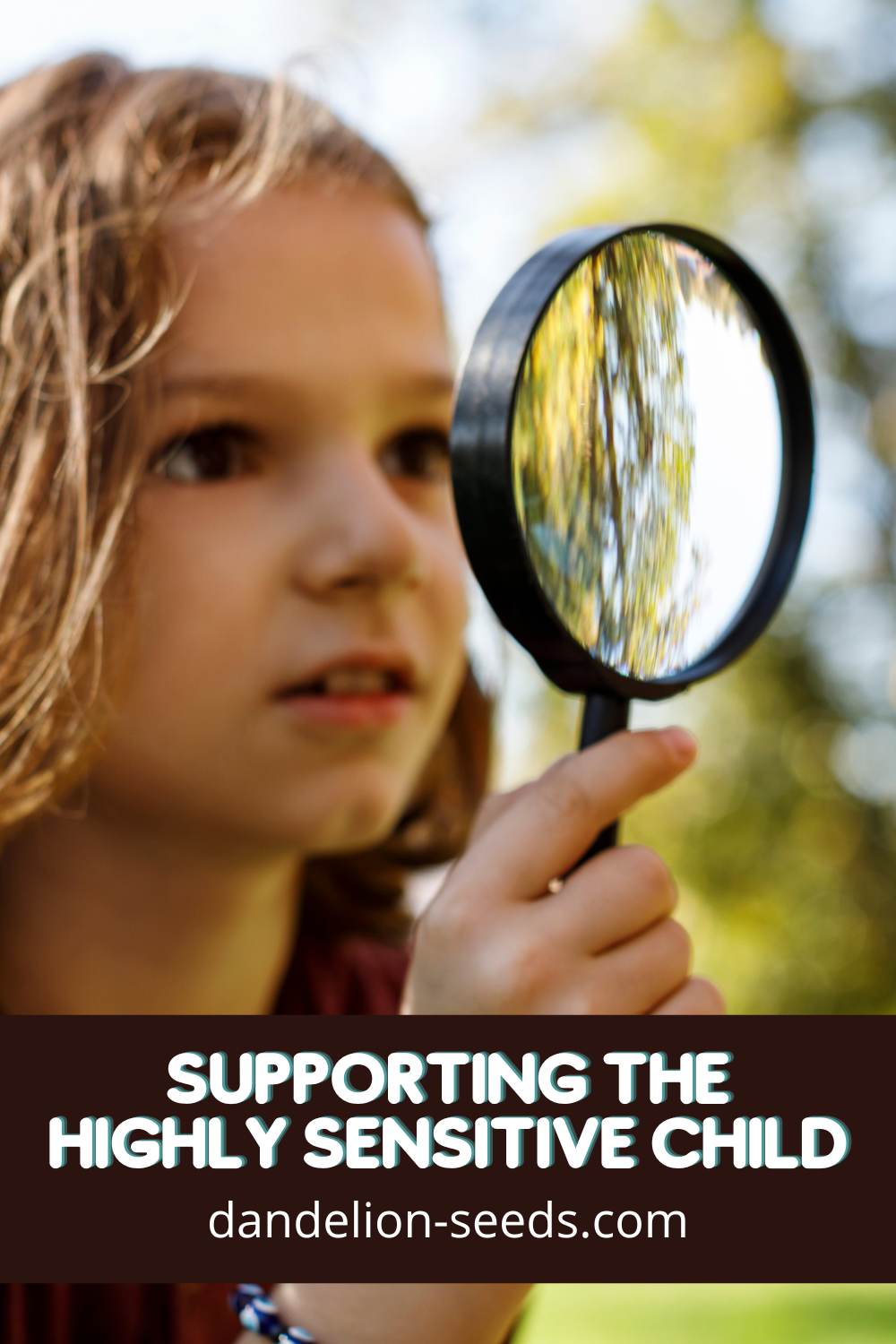
A highly sensitive person (HSP) or, in the case of children, a highly sensitive child (HSC) is:
"...a term coined by clinical psychologist Elaine Aron. According to Aron’s theory, HSPs are a subset of the population who are high in a personality trait known as sensory-processing sensitivity, or SPS. Those with high levels of SPS display increased emotional sensitivity, stronger reactivity to both external and internal stimuli—pain, hunger, light, and noise—and a complex inner life." (source)
In other words, a highly sensitive child may literally experience the world around them differently than others do. They're often more aware of their environment and all that's surrounding them, from the lights in the room to the smells coming from the kitchen and the noises coming from outside. Sensitive people are often hyper aware of their physical surroundings.
Their emotional world may differ from others', too. A highly sensitive child is a deeply feeling child. Big emotions can be overwhelming for many HSCs. It does not mean they're "moody" or "difficult." In fact, highly sensitive people, including sensitive kids, sometimes feel all their emotions extra intensely, including the emotions most people perceive as pleasant, such as joy and gratitude.
Additionally, their self-awareness and empathy may also be greater than others', so they're often caring friends and are deeply loyal to their family members. Their empathy and loyalty can offer them some distinct advantages in friendships and other close relationships (source).
In short, there's nothing at all "wrong" with a highly sensitive child. In fact, they're invariably an exceptional child with traits that, if we take the time to understand how to support them well, we can frame as superpowers.
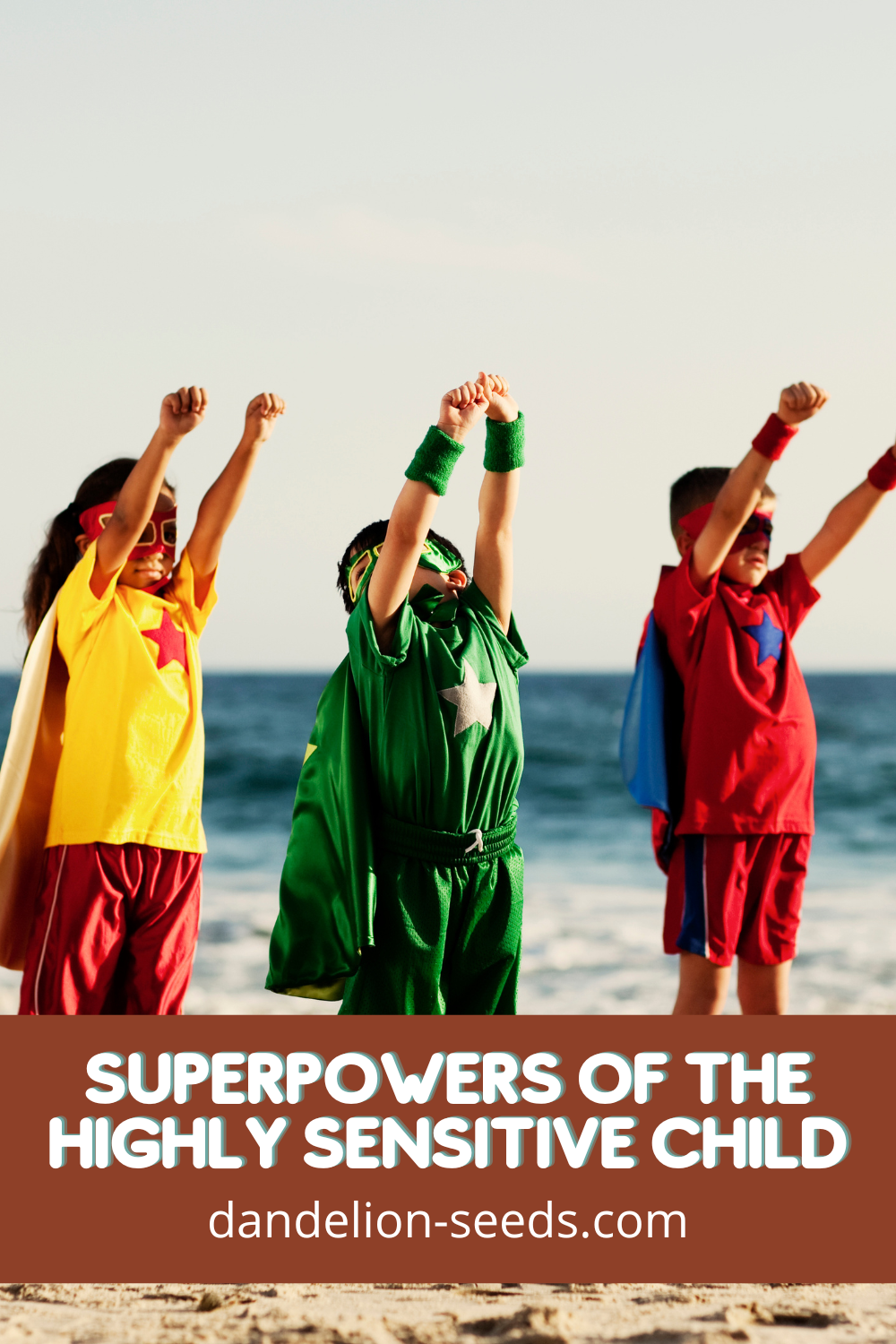
In addition to the empathy and loyalty mentioned above, most HSCs have greater self-awareness than others. They can sense subtle changes in not only their own emotions, but also in those of others. This can be a gift to their families in that they're often highly intuitive and can sense and adapt to the emotional tone of the room. They often come across as "wise beyond their years." This is especially true if they've received consistent emotional support early in life.
With this innate wisdom, they can often be a wonderful support to others. When they care, they care deeply. They may also be mature for their age, having picked up on and learned social cues from adults.
They may be cautious observers, sometimes seeming to hold back from larger groups while they gauge their safety, emotionally and otherwise. They often pay close attention to details, as well as the "big picture" of the world around them.
Many adults may have the sense that highly sensitive children are "wallflowers" or other less-than-flattering synonyms. However, not every highly sensitive child, or "shy" child, is an introvert (source). Perhaps surprisingly, few adults (parents, teachers, or otherwise) realize that 30% of sensitive children are extroverts. An extroverted child may be very outgoing and seem to thrive in busy environments, and still be highly sensitive.
Let's look at how a highly sensitive child who's an extrovert might perceive a situation. Although they might be outgoing and quick to play a game they don't know how to play in the spirit of making a new friend, let's say the other child laughs at them for not knowing the rules.
Although the child might've displayed extroverted characteristics in engaging boldly with someone new, that same outgoing child may deeply feel the insult. They may feel frustrated or hurt longer than some might expect, because the wound may run deeper than it would for some children. Extroverted children need as much emotional support as the child who seems to withdraw or be more introverted.
In addition to not every sensitive child being "slow to warm up," some can be hurt by labels. Mislabeling a highly sensitive child as "shy" can damage their self-esteem.
"...Labelling a child 'shy' means you're talking about who they are as a person, not just their behaviour. Children will often take others' observations seriously, especially those of the people they look up to..." (source)
Additionally, shyness is sometimes misconstrued as social anxiety. It's not.
"...Social anxiety disorder...involves the experience of anxiety and self-critical evaluation in social settings response to the fear of evaluation by others of one’s public performance. It has a greater disruptive influence on one’s social behavior than the experience of shyness..." (source)
Shyness isn't "bad," but as western cultures tend to value extroversion more, the label may prove damaging to the child. (source)

Being a highly sensitive person means little more than having certain temperament traits common to sensitive people. It is not a medical diagnosis, although it can be measured medically:
[SPS] is a temperamental or personality trait involving "an increased sensitivity of the central nervous system and a deeper cognitive processing of physical, social and emotional stimuli". The trait is characterized by 'a tendency to 'pause to check' in novel situations, greater sensitivity to subtle stimuli, and the engagement of deeper cognitive processing strategies for employing coping actions, all of which is driven by heightened emotional reactivity, both positive and negative'. (source)
Interestingly, it is possible to measure greater levels of sensitivity in MRI scans (source). Moreover,
[SPS] is becoming increasingly associated with identifiable genes, behavior, physiological reactions, and patterns of brain activation (Aron et al. 2012). A functionally similar trait—termed responsivity, plasticity, or flexibility (Wolf et al. 2008)—has been observed in over 100 nonhuman species including pumpkinseed sunfish (Wilson et al. 1993), birds (Verbeek et al. 1994), rodents (Koolhaas et al. 1999), and rhesus macaques (Suomi 2006).
Highly sensitive pumpkinseed sunfish. Huh.
High sensitivity is increasingly recognized in the medical community, but it's not a diagnosis and needs no "fixing." Although that's great, we also need to know how this affects our day-to-day life in parenting.
Being a highly sensitive person, whether child or adult, means feeling deeply. The "highs" of life may feel euphoric and joyful; the "lows" may touch on despair. Of course, a highly sensitive person will spend plenty of time in the emotional middle ground, too--but when they're inclined to feel something strongly, it may be amplified as compared with others' emotions.
As such, a highly sensitive child has a nervous system that can be easily overstimulated. They may be prone to expressing big emotions, because their nervous system is literally experiencing them as feeling bigger than those of other people.
Some highly sensitive kids will despise clothing tags, for example, because they find them uncomfortable. A less sensitive person might feel frustrated by what seems like "no big deal," but these kids are literally feeling them differently on their skin.
Not every highly sensitive child will care one whit about clothing tags, however. Each child's development is different, and sensitivity will show up in different ways for different people.
Highly sensitive children do not, by definition, have any "disorder," including attention deficit disorder, and they're not necessarily more anxious than other kids.
Further, they don't grow out of it by a certain age, nor are they "problem children." In fact, many highly sensitive kids are extremely well behaved due to their self-awareness and extremely perceptive understanding of others' experiences.
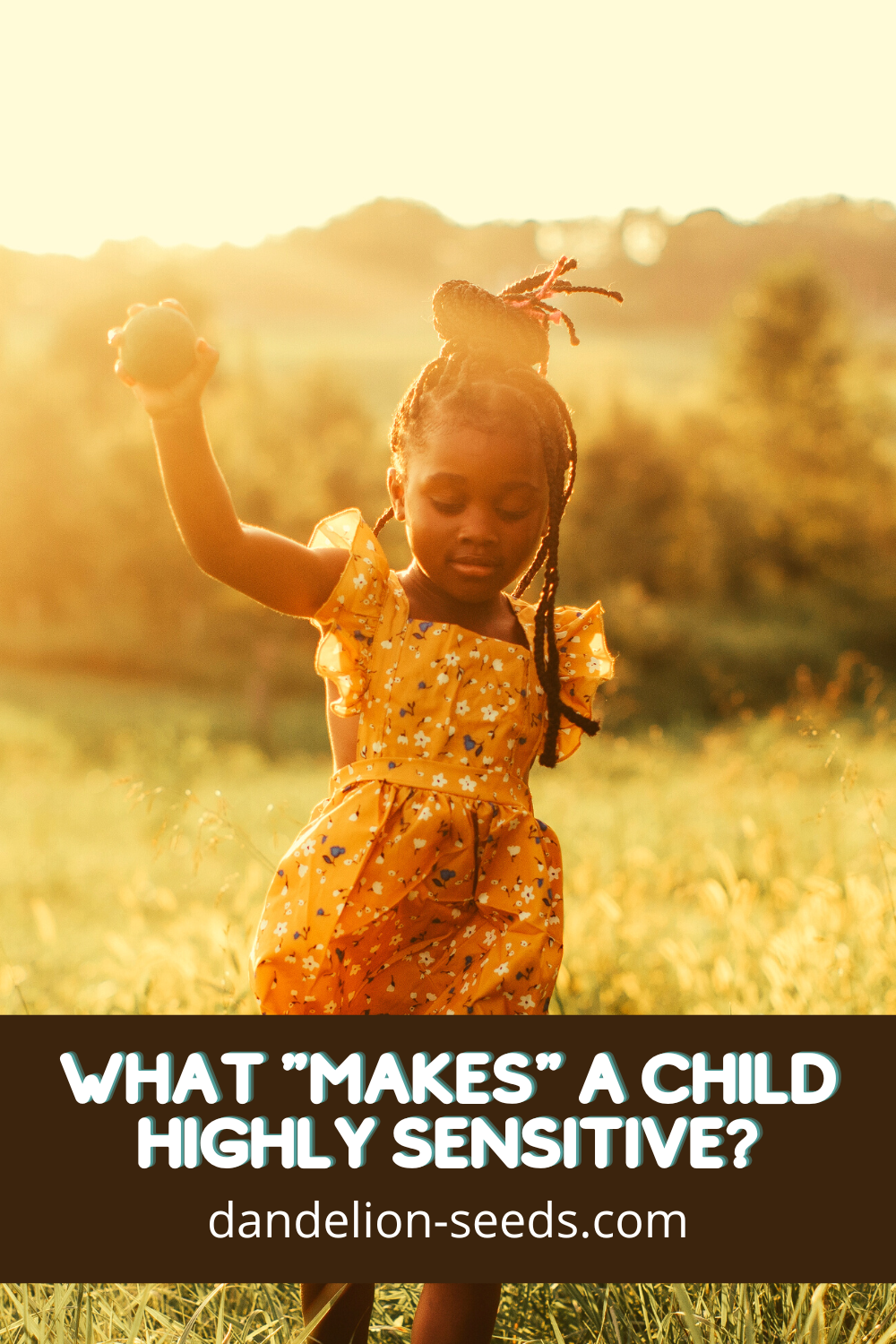
High sensitivity comes from not only the same types of genes that affect other temperament traits, but also the child's environment:
"...genetic factors account for between 20% and 60% of the phenotypic variance in personality, which means that the remaining 80% to 40% of the variance is attributed to environmental factors. Clearly, the environment is very important to temperament." (source)
Does this mean parents "make" their children sensitive? Not necessarily. Environment is important, but genetics play a strong role, too. As an example, let's think about hair. If a blond-haired child spends a lot of time in the sun, their hair is likely to get lighter. Conversely, if they spend more time indoors, their hair isn't likely to lighten much. There's variation within the "blondness" that can be affected by environment.
At the same time, if you put a black-haired child outside, it's highly unlikely that their hair will get substantially lighter. Their genes simply don't allow for that.
When it comes to a highly sensitive child, we can influence their sensitivity through their environment, but we can't give them genes they don't have, nor can we take away the genes they do have.
Highly sensitive children grow up to be highly sensitive adults. How we support and nurture them, however, can help determine how effectively they manage their sensitivity, and whether they see it as a gift or a hinderance.
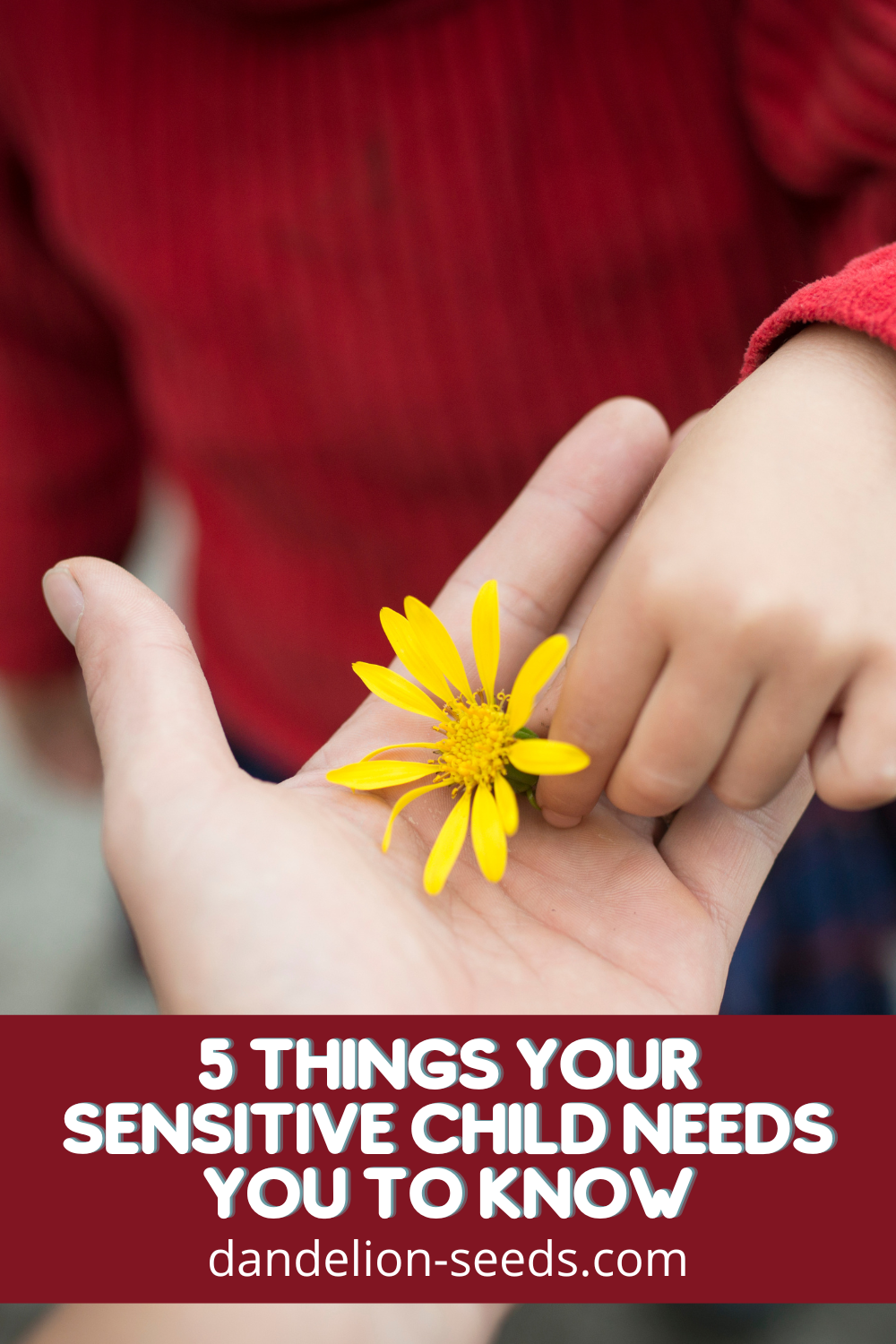
Know that the highly sensitive temperament means the child will experience legitimately more intense emotions than nonsensitive children. Feeling emotionally intense can be both wonderful and difficult; higher "highs," but also lower "lows."
As such, it's helpful to be emotionally attuned to their feelings. Something that might bother other kids only a little, for example, might be truly disturbing to sensitive kids. Check in. Validate what their emotional experience is, rather than projecting your own or assuming all children feel the same way about their experiences.
A toddler was meeting her uncle for the first time. Her uncle, assuming this child was like his own children, attempted to bond with her by startling her with an unexpected "Boo!" The child, however, was more startled than he anticipated, and she burst into tears. She withdrew from him for the rest of their day together, which was the opposite effect of what he'd hoped would happen.
In this example, the uncle could've paused to read the child's body language and see if she was advancing toward him with curiosity and playfulness, or retreating when he got closer, rather than charging at her with the "boo."
Although toddlers aren't developmentally ready to regulate their emotions, we can work with older highly sensitive children on their emotional regulation skills. This is not to say we should stop anyone from feeling their feelings. Quite the contrary.
Instead, we set them up for future success by teaching them what to do with their big emotions. This will help them immensely not only with their day-to-day existence, but it will also help them adapt in new situations as they arise.
Your child will experience their surroundings differently than others will.

If a highly sensitive child is at a birthday party standing next to other children, hearing the same sounds and seeing the same lights, the highly sensitive child may literally experience those sounds and lights as being louder and brighter than the others kids do.
It's important to have a proper understanding of the child's perception; they may simply be highly aware of their surroundings, and therefore, may need more downtime to compensate for all the sensory input.
Be proactive about creating downtime before and after big-to-them events. Your child's nervous system will need the extra support and empathy for everything it's processing all at once. Your child may need more emotional support than some others do, including for some, more physical touch and words of affirmation.
Your tone and emotional authenticity matter. A lot.
Because highly sensitive children are often so in tune with their surroundings, they're likely to notice subtle changes many others might miss.
Let's say you have a challenging day at work. You come home and are happy to see your family, but you've got some lingering stress. The highly sensitive child may pick up on this stress, but because you've only said that you're "fine," they'll pick up on the disconnect between your tone and your words.
Younger children, in particular, may be prone to assuming that you're upset with them, even if it's not true. They simply don't know what else might be bothering you besides their presence, so they internalize the worry and their sense of emotional safety decreases.
Imagine what they're likely to be "reading" in your demeanor. In age-appropriate ways, be transparent about what you're feeling so they don't assume they've caused you to feel upset. Further, you can model for them healthy ways of managing your stress so that they learn how to release their own struggles.
Being authentic also helps the highly sensitive child learn to trust their intuition.
Your child probably wants you to unapologetically advocate for them until they're able to advocate for themselves.
Be aware of their school setting. Teachers understand that different children have different temperaments, and they can be aware that the highly sensitive child may not act quickly or feel emotionally prepared when pushed far out of their comfort zone. Instead, the teacher can help them ease into new situations by talking about them beforehand and showing empathy when kids are slow to warm up to new children, or activities, at school.
If you homeschool or unschool, child-led learning often helps highly sensitive children thrive.Ask for your child's consent to speak with the teacher. If they give it, follow through. This doesn't mean "coddle" the child; it means support them.
You aren't "making" a child be more sensitive by being responsive to their pleas for love and attention. Some family members may erroneously say things like "You're creating a mama's boy" or a "daddy's girl," but those are old clichés that serve no purpose . To the contrary, being responsive to a child's needs helps promote their independence. Responsiveness, along with attunement to a child's emotions and experiences, are proven to nurture secure attachments (source).
Adults in your child's life may pressure you to be tougher on your child to "prepare them for reality."
Remind those adults that we're raising children for the world we want. The gentler we are with children, the more gentleness they'll have to pass on to others as they grow up. Harshness breeds more harshness and disconnection. Kindness begets kindness. We are preparing them for reality if they grow up choosing friends and partners who treat them kindly and respectfully. They won't stand for less.
The most important thing parents and caregivers can do for sensitive kids of any age is to accept them for who they are, without trying to change them or "toughen them up." In fact, if we try to make them tougher, it may backfire--causing them to feel less supported, and more insecure.
A highly sensitive child can be extremely secure in their sense of self, especially when surrounded by adults who celebrate and cherish their sensitivity. In fact, as they grow, they can share their gifts with others. Celebrate and support these kids exactly as they are.
The quiet child: how can we help them thrive in an extroverted world?
When my daughter was two, I had to schedule at least two hours when we'd go to the grocery store because, being the new talker that she was then, she insisted that we stop and talk to every single person we passed in every single aisle. I'd go in for one tomato and leave with 25 new friends.
She didn't stay that way, though. Over time, some kids, like mine, change to become a more of a quiet child than they were before, while others become more of the extrovert they always were.
Many adults assume, however, that all kids crave BIG attention—the brighter, bolder, and louder, the better. However, some children need space to build trust before they'll delve into conversation or even basic play. And for some of us, giving a quiet child space is a hard concept to grasp—particularly those of us who really want to

connect and who might not be "wired to wait" the same way the child is.
In fact, half the people in the world are introverts. That can leave the other half wondering what to do to
connect with them. So, what can you do when the quiet child you're trying to engage shies away from your attempts? Hint: don't try harder.
I'll admit that for several reasons, I felt odd giving friends who hadn't met my quiet child, who's now solidly introverted, this advice. However, it's proven to be the most helpful tip I've found so far. Bear with me:
Pretend the quiet child is a cat. I mean that in the most respectful of ways. Bear with me.
If you'll forgive the analogy and the generalization, the way to engage puppies—unlike cats—is typically to run, throw balls, pick them up, and roughhouse.
Conversely, a cat typically responds better if you simply find a peaceful place to sit where she can check you out from afar, perhaps come and sniff an outstretched hand, and decide whether to snuggle up or play with a toy you're dangling. If you move too quickly, though, she's likely out of there. She doesn't want you to pursue her.
A quiet child may want to observe her trusted adult's interactions with you before engaging with you directly. If Mom or Dad seems relaxed and happy with you and is following the steps in Supporting the Introverted Child, she can follow her adult's cues and let her guard down when she's ready.
That said, even if you're truly hilarious and other kids burst out in giggles when you surprise them with a "Boo!" they weren't expecting, quiet children often need an entirely different approach.
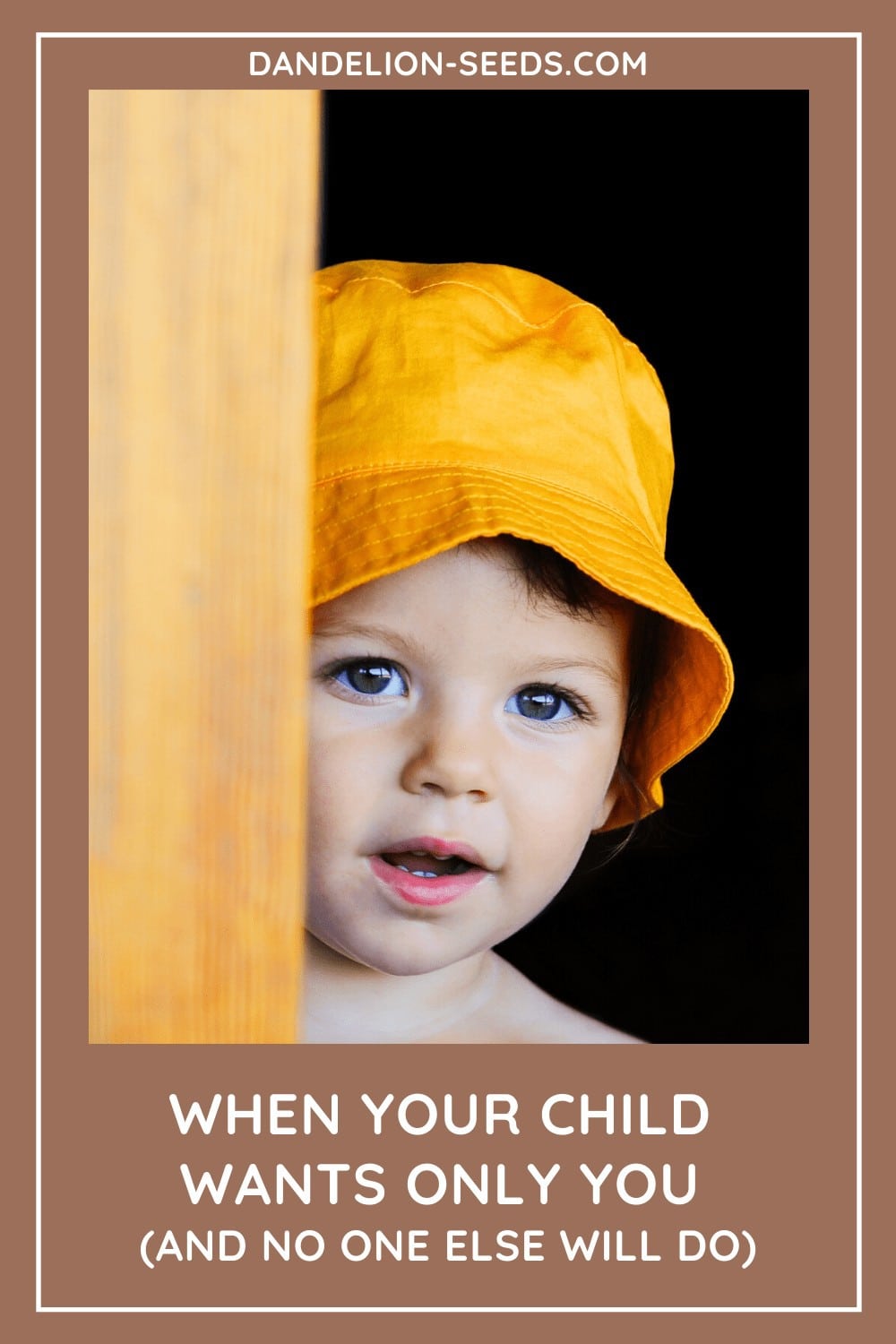
Here's what to try, instead:
In every single case where my friends trusted the "cat suggestion" I gave them privately before meeting my quiet child, it worked. By the time we parted ways, my girl had signaled her comfort by reaching out and holding my friends' hands as we walked together. By the look on my friends' faces, suffice it to say she'd melted their hearts with her subtle connection.
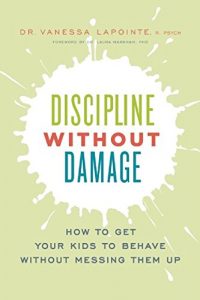
Channel Depeche Mode (am I dating myself?) and enjoy the silence. Keep the loud games, TV, music, and
general distractions off. Some (but not all) introverted children are easily overwhelmed in new situations and have trouble connecting to new people when there's too much chaos to "compete" with their trust-building mechanisms.
If you can find a quiet activity the child enjoys, all the better. Read a children's book alone if you need to. The child can choose whether to engage with you, but it's a good way to establish common ground. Let the child come to you.
Respect the pace, the space, and the child as a whole. Aunt Pat might've expected a hug from you when you were little, even when you hadn't seen her for 1000 years. If you really want a relationship with this child, though, it's less important to recall what was "polite" or expected when you were little, and more important to connect to the child in a way he feels emotionally safe. Consent matters.
This can be tough since it may require you to reevaluate your thinking, but it's important. Let go of who you think he "ought" to be. And by all means, if this child's sensitivity or introversion is cute or otherw
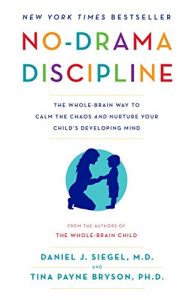
ise funny, don't laugh at him.
Say no more about a quiet child's shyness or quietness to him than you would about a loud child being loud (in other words, say nothing). Although there shouldn't be, there's sometimes a certain stigma to being "shy," and most introverts don't like people labeling them that way. Remember that buildin
g trust is the name of the game. Genuine kindness goes such a long way for all of us.
Most of all, don't give up. It's not personal. Just like we do as adults, kids want authentic connections—particularly kids who aren't naturally the life of the party.
Once you do connect, it can be the most wonderful and genuine reward.
I was always a highly introverted child. It showed. For instance, when I was in high school, I learned that for my dance group's upcoming graduation dinner, the other dancers selected me to receive the spoof award for being the "Most Reserved." Knowing how much I despised being called by a "label" like this one, my Mom suggested that I tape a sign that read "I AM NOT SHY" to the back of my underwear. She said that when I walked up to receive the award, I should moon everyone with my, ahem, (not shy side). Although I appreciated her sentiment, I did not take that advice.
Fortunately, the award never happened, but the message to me was clear. I'd known since I was little that I was simply wired differently from some of the louder kids. And being the good parent that she was, my Mom supported me in that.
In general, the mainstream society in which I live views a gregarious extrovert as socially "good," whereas quiet seems to imply some kind of problem. It isn't a problem at all, of course. Well-meaning adults often pursue introverted children who aren't quick to respond with a sweetly teasing inquiry of "Oh, are you shy?" No matter how good-natured the intention, a child can perceive this as, "You, little human, are not okay as you are." Let's fix that.
In truth, the child may not be shy at all. He may just be an observer who wants to find acceptance in the world. We all want that acceptance. Splitting hairs? Nah. For some, it’s actually quite different, and both can be completely developmentally normal. There's a difference between lacking confidence and being an observer who's sure of oneself. Some kids just prefer to enter the pool through the shallow end, so to speak.
Going slowly gives introverted kids the information they need to feel comfortable in new situations. Regardless of your child’s confidence, it's important for an extrovert who might not share the same "wiring" to understand that the seemingly innocent question about shyness can embarrass or cause pain for some introverted children. Talking with someone who's not a parent, sibling, or close friend might be a completely different experience for that child than it is for someone else.
No, it's not. Shy is a feeling alongside a behavior, as in "I felt shy and hid behind my mom when everyone in the room looked at me." Introverted simply means that someone feels recharged after being able to spend time alone, sometimes with a small group of close friends. Spending time with large groups of people can feel emotionally draining. It's usually temporary and is not a reflection of the child overall. Conversely, extroversion means that someone gets his or her "energy" from being around other people.
It's more about the types of interactions that deplete or invigorate us than it is about how we act in any single situation.
No, it's not. Introverted children are not always highly sensitive, nor is extroversion a trait of lack of sensitivity. Plenty of highly sensitive children like to spend time with others and get a lot of energy from being around others. The behavior of highly sensitive children varies considerably from child to child. That said, according to Dr. Elaine Aron, 70% of highly sensitive children (HSCs) are also introverts, so there's a lot of crossover.
Here are some ways you can support them "in the moment."
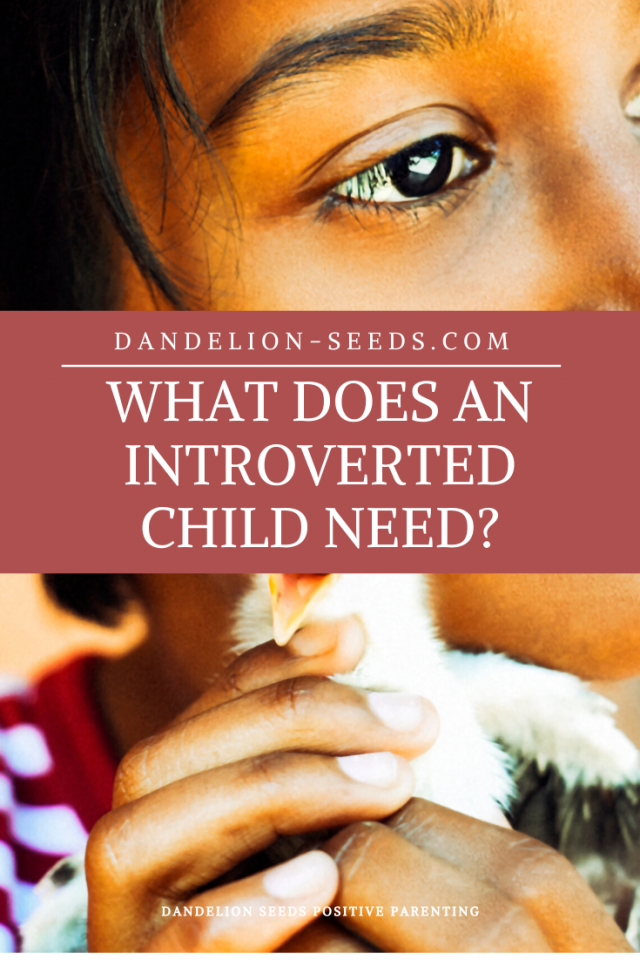
To you, it might just be another kid's birthday party. To your child, it might be "a place where people I don't know look at me and adults try to talk to me, and noisy kids are everywhere." Rather than telling your child what others expect of him (which she can perceive as pressure), state just the facts and describe what your child is likely to see there. Then, remind your child that you (or another trusted adult) will be with him the whole time. Finally, agree on a script of what he can say if he needs support. If talking to another adult without your involvement is tricky for your child, consider giving him a small "help card" to show that adult, instead.
If you're staying present with your child, try this.
If someone does say something to your child, then ask your child something like this (within earshot of that person): "Would you like to respond, or shall I tell them you prefer to observe?" There are lots of variations you can try here. Now that I have an introverted child of my own, I've had lots of opportunities to practice with her. Once we graduated from this question, we moved onto, "Would you prefer to say 'hi' or wave?"
Remember the importance of your loving, supportive touch along the way. Introverted children need their parents to follow their lead and reassure them in verbal and non-verbal ways. Your positive support will make the experience less hard, and much more positive, for them.
It's fine to encourage without pressuring. One helpful hint is to wait just past where you're comfortable and give your child enough time to respond. Sometimes it just takes a moment; release your expectations that they won't do it. Maybe they will!
Here's how:
If she chooses not to engage with someone who's talking to her, simply tell the other person: "She prefers to observe until she knows people better."
It's sometimes tempting to overcompensate for child who isn't responding to another adult (or child). If you apologize for your child's lack of response, it might placate the other person, but it sends the message to your child that he's done something wrong. Of course that's not your intention!
What should you do instead if your child isn't responding? Simply smile at the other party and continue the conversation normally. It sends that person AND your child the message that this is no big deal. That's great for your child's comfort level and self-esteem. We all feel more compelled to engage when we lack pressure to do so.
"Shy" and all its word-cousins have a stigma in the culture where I live, although they shouldn't. In many countries, it's actually perceived as rude if an extroverted someone is too over-the-top with energy (and words). In my home, we've banished all references to shy, reserved, and similar; instead, if we use any label at all (and we try to avoid them), we use it only as a verb. With child-first language, we say, "My child prefers to observe." I want to raise her knowing that labels don't define her. She's not my "shy child." She's my child.
It's helpful to listen to your children and seek understanding of what resonates with them. Every child's personality and preferences are different.
Spend time talking about a time you preferred to observe as a child. Introverted children love hearing that others have felt the same way they do. Even if you were usually the life of the party, you likely remember a time that you didn't want to be in the middle of the action. Present it as a positive; it's affirmation that your child is perfectly okay just as he or she is. Your child will flourish best when he or she feels like you "get" it. If you worked through a tricky situation, tell your kid how you did it. Explain your own strategies that have worked (while framing introversion in a positive light).
You know your child best. What kind of stimulation does he or she enjoy? Watch them for cues without projecting your own experience, or that which you've seen the media say is "normal." Are your kids happy spending time in simple play with family, or do they require many activities throughout the day with a large amount of socializing? If you contact your child's teacher with questions about how they learn best in class---in groups or individually---that can be a clue, too. If need be, rule out anxiety disorders that may be affecting your child's social-emotional comfort.
Quiet or not, you're raising a person who will look to you for validation that he or she is "good enough" for the world. There's a lot of pressure out there. And you, dear parents, when you support your children just as they are, are doing them a wonderful and necessary service.
If you don't have an introverted child, the best thing you can do is let the quiet ones be, without judgment or comment. The world needs all of us.
_____________________________________________________________
(Amazon afflinks): These books by Susan Cain and others helped me understand many introverted kids better than any others I've found; I highly recommend them. If you are, or know, an introverted or sensitive adult, they provide fantastic insight.